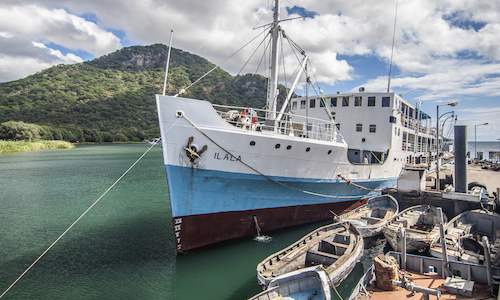
Climate
The dry season is often described as the best season to visit Malawi. From May to October, expect green, lush vegetation and cool temperatures ranging between 7 ℃ (45 ℉) and 23 ℃ (73℉). For those seeking an unforgettable game viewing experience, October and November - the end of the dry season - is the best time to visit.Health
Medical insurance is a necessity for those travelling to Malawi. Vaccinations against diseases such as polio, Tetanus, typhoid and hepatitis are highly recommended. Travellers are advised to take precautions against Malaria by taking Malaria prophylactics. It is always advised to consult your doctor prior your safari holiday.Passport and Visas
Visitors to Malawi should be in possession of a valid passport before entering and leaving the country. A visa is not needed for guests travelling from Belgium, Italy, Denmark, Holland, Finland, France, Germany, Holland, Iceland, Japan, Norway, Portugal, Spain, San Marino, Sweden, Liechtenstein, the Commonwealth and the USA.What to Pack
There are a number of essentials to pack when visiting Malawi. Among the list of essential items to pack before your Malawi safari is high-strength sun protectant, a hat, anti-histamine cream and tablets, and insect repellent. Game viewing in Malawi is an enchanting experience and to make the most of your adventure, make sure that you pack the following items:- A torch
- Binoculars
- Bush-coloured safari outfits, casual evening wear, a warm jacket, a medium weight knitted sweater
- Comfortable walking shoes
- Swimwear
Currency
The currency unit in Malawi is the kwacha (MK) and is made of 100 tambala. The ideal foreign currencies to carry with and that are widely accepted are the US dollar, British pound and South African rand. Trades for the local currency can be made at the ATMs and bureaux de change at the airports. Only a few ATMs are available throughout major cities including Lilongwe, Blantyre, Karonga, Liwonde, Mzuzu, Salima and Zomba. A commission of 1% will be charged for changing of travellers cheques at banks and bureaux de change.Travel by Bus and Tram
Those travelling via bus in Malawi, have three options. The luxury Coachline, operated by Shire Bus Lines, travels between Blantyre and Lilongwe three times a day. Another option for guests travelling in and around Malawi, a daily express bus service that runs through Lilongwe and Mzuzu, could act as a form of transport. The Shire Bus Lines also runs an express bus service between main towns with a few stops.The frequency of busses in rural areas is generally low; often no busses pass through the area. Locals and tourist make use of a matola - a truck or a pick-up - to follow their daily routine.
Travel by Car and Road Transfers
The main routes in Malawi are mainly good-quality roads, which have been upgraded within recent years. Roads in the rural area are in poorer conditions and during the rainy season, the roads are impassable.Visitors can make use of a car hiring service. A full driver's licence and a the age requirement of 23 years-old are compulsory for driving and renting a car in Malawi.
By booking a Siyabona Africa holiday package, your transport needs between destinations will be taken care of by one of the Siyabona Africa consultants.

 Malawi is one of the most densely populated countries in Africa with 171 persons per sq. km of arable land. The main ethnic groups are the C...
Malawi is one of the most densely populated countries in Africa with 171 persons per sq. km of arable land. The main ethnic groups are the C...